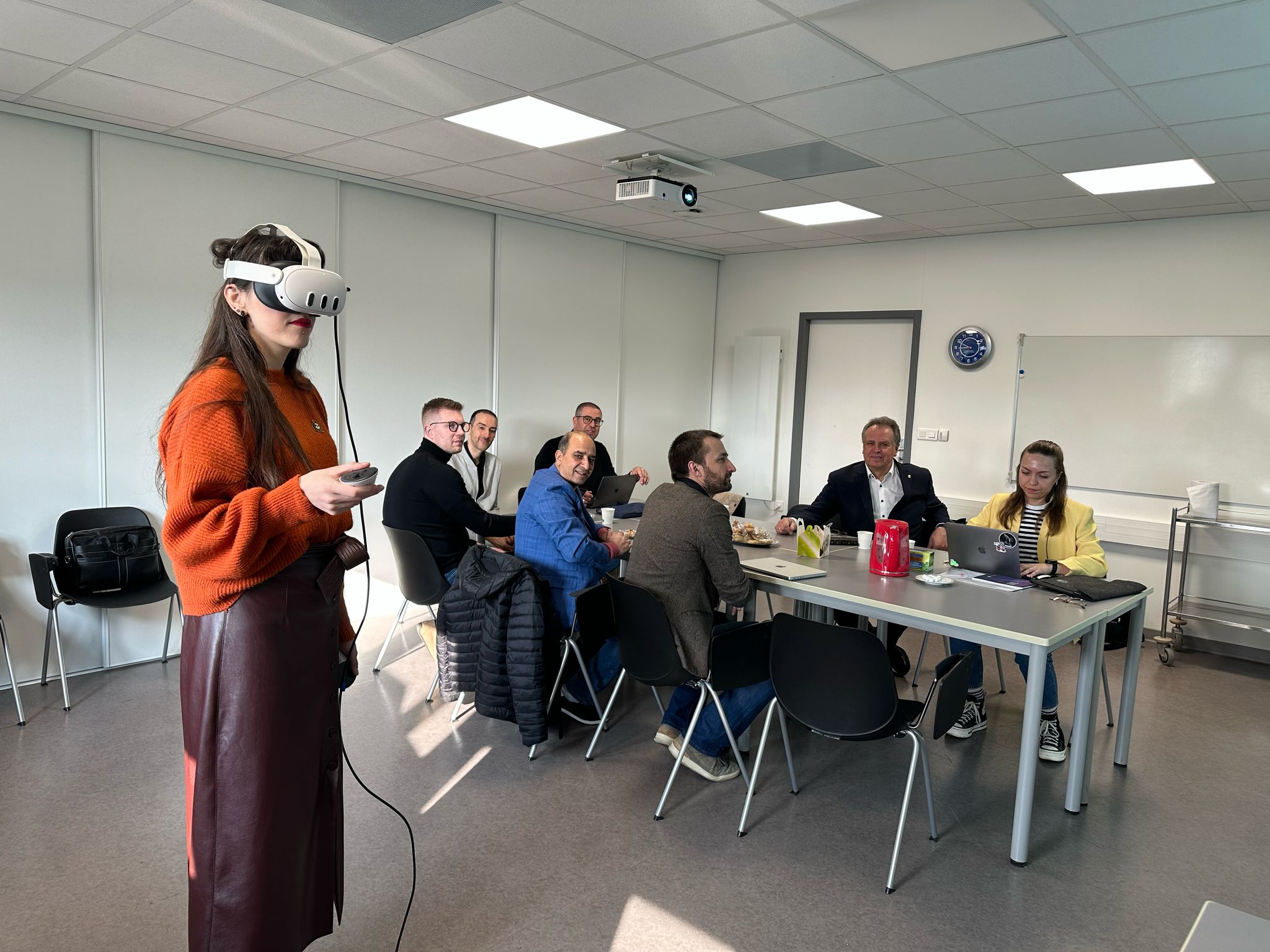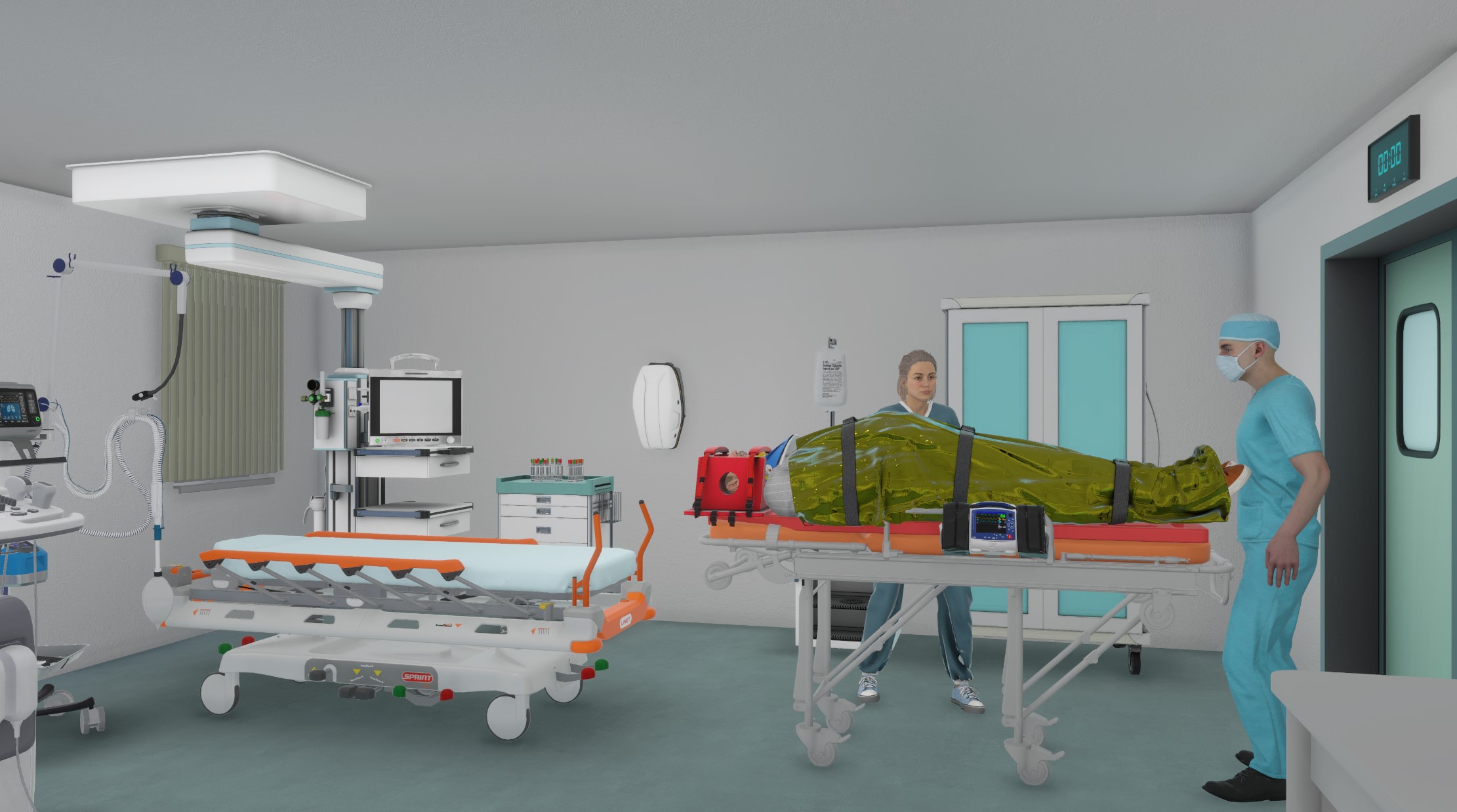Emergency Medicine Training Through VR Technology – What Lies Ahead?

A team of experts from Vilnius University (VU) took part in the MedEd PolyTrauma VR project partner meeting in Besançon, France. The gathering focused on the continued development of an innovative emergency medicine training system based on virtual reality (VR) technologies. Over the course of three days, project partners from Lithuania, Poland, and France collaborated on testing, refining, and planning advanced training scenarios.
The meeting began with a visit to a local simulation centre, where participants were introduced to cutting-edge learning environments. A key highlight was a presentation by “Gluk Media” (specialising in unique and innovative solutions) followed by hands-on testing of a VR training scenario, enabling partners to evaluate the practical application of VR solutions in real-world teaching settings.
“It was an extremely productive meeting during which we achieved a great deal. Seeing the first version of our VR training come to life was a memorable moment, making the meeting truly exceptional,” commented project leader Prof Pranas Šerpytis.
One of the most significant outcomes of the meeting was the finalisation of five core polytrauma scenarios – internal bleeding, arterial bleeding, chest trauma, head trauma, and burns – along with major progress in detailing and refining each case. The team also developed an evaluation system to assess student knowledge and defined key educational objectives for each scenario.

In addition, partners discussed the project’s dissemination strategy, with plans to present results at upcoming international medical conferences, aiming to broaden its impact across academic and clinical communities. An updated timeline for upcoming activities was agreed upon, ensuring all tasks are completed in a timely manner.
To conclude the meeting, participants visited an Emergency Medicine Department and EMS facility, where they observed real-life applications of simulation-based training in professional practice.
Project coordinator and emergency medicine physician Dr Renata Juknevičienė highlighted the importance of such meetings, stating: “The project is progressing on schedule, and gatherings like this help us to accelerate even further. The collaboration and exchange of expertise among our partners are key drivers of our success.”
Representing Lithuania were Prof P. Šerpytis from VU, emergency medicine physician Dr R. Juknevičienė, and emergency medicine resident Beatričė Raščiūtė, along with “Gluk Media” team members Valdemaras Skinderis and Kristina Mažeikaitė. They were joined by partners from Poland – Prof Rakesh Jalali and Dr Marcin Baluch from the University of Warmia and Mazury in Olsztyn. The meeting was hosted by Prof Abdo Khoury and his team from Marie and Louis Pasteur University (formerly the University of Franche-Comté) in Besançon.
The project is carried out under the Erasmus+ Cooperation Partnerships programme (KA-220). Its main aim is to improve the quality of clinical skills among medical students through realistic VR-based polytrauma scenarios and to provide educators with a modern tool for physician training. The project will run from 2024 to 2026.